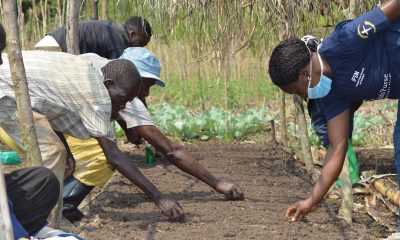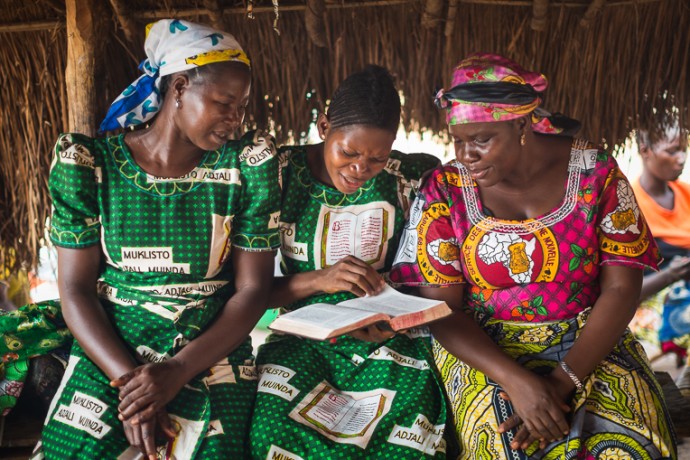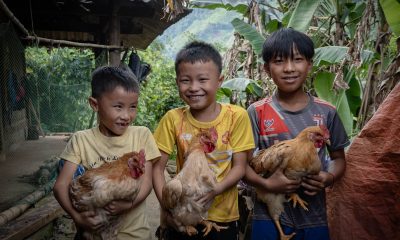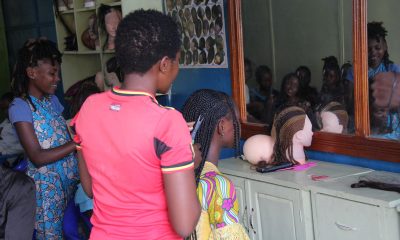In the Democratic Republic of Congo, Samaritan’s Purse is providing agricultural tools, training, and mentorship to people with disabilities and special needs, helping them reap an abundant harvest.
In rural parts of the Democratic Republic of Congo (DRC), living with a disability can be extremely difficult—even putting food on the table is a challenge.

Through agriculture programs, disabled residents in eastern DRC are learning more effective growing techniques.
Recently, though, Samaritan’s Purse agriculture and livelihoods teams have been working hard in eastern DRC to train some local farmers in how to more efficiently grow flourishing gardens.
“These are farmers who all live with some form of physical disability, but they’ve been able to come together as a group and learn new growing techniques,” said Nicole Solvig, program development officer for the Samaritan’s Purse DRC field office.
The agricultural project serving these people is part of a broader Samaritan’s Purse initiative in DRC to equip vulnerable and marginalized families so they can better provide for themselves. Among those we are helping are people with disabilities, families with malnourished children, and widows.
“Some of these people have access to farmland but lack the tools, seeds, or knowledge for growing on that land and optimizing food production,” Solvig said.
Now these farmers, despite the physical limitations that had once inhibited them, have taken what we’ve offered and created new sources of income and food for their families and community.
Many of them have established profitable agricultural enterprises that before seemed impossible. Solvig describes the crop yields among these disabled communities as some of the best in the region.
“We are so grateful for this. It will help us and our families for the rest of our lives.”
Local farmer Anne-Marie Nagirana says the new growing techniques and tools have empowered her, and women like her, to overcome some of the financial strain she’s experienced over the years.
“I am physically disabled and I’m grateful and I thank God for sending Samaritan’s Purse to help people like us,” Anne-Marie said. “We are given seeds and taught agricultural practices that we can put to use immediately.”
With the simple tools provided, including a garden hoe, sprinkler can, machete, and, of course, seeds, Anne-Marie says she has learned to turn any patch of earth into a food-making and money-making enterprise.
“They’ve taught us how to transplant crops, how to water them, how to plant seeds to help them grow, and how to protect against insects,” she says. “This is how we are able to get a good harvest now. Now we’re seeing a good sprouting of crops.
“Samaritan’s Purse has transferred this knowledge to us and it will be with us after they leave. We are so grateful for this. It will help us and our families for the rest of our lives.”








